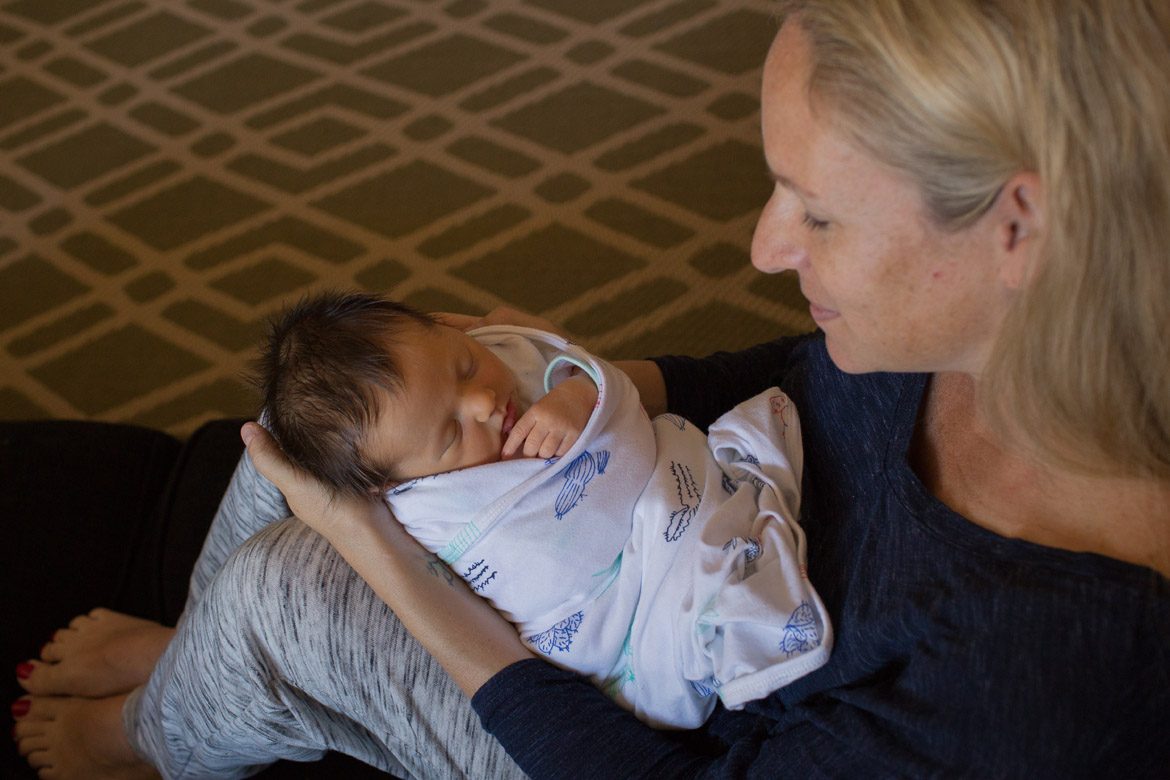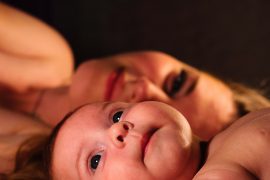By Tracy Cassels
I have taken it upon me to ask some of my clients and many of the people who send me questions or messages the following question (when I think it’s relevant):
What do you think is most important for your child’s development?
Almost inevitably parents respond with “sleep”. Some say that then catch themselves and wonder why they think that’s most important, some stick with that answer. It’s not too surprising given the push we have in our society to tell parents that they should worry about sleep nonstop. Heck, it seems most of the time our parenting is judged by how well our children sleep, everything else be damned.
Now, if you are reading this and wondering why we would even consider something else as being more important, let me just throw out these suggestions:
- Secure attachment
- Love
- Responsiveness
- Being fully fed
- Getting enough appropriate stimulation
- Touch
Do you truly believe that sleep is still more important than those things? If you think of your own life, is sleep the primary concern? Does sleep make your problems go away? Does it help you feel comfortable in your own skin? Does it comfort you when things go wrong?
The fact is that sleep – though important – is not the be-all and end-all for our children. The brain needs to rest, yes. It needs sleep, but the anxiety that parents feel around sleep isn’t about a child getting no sleep at all (though there are such extreme cases, this is not what is on the table when parents talk about their child getting “enough” sleep), it’s about a societal decision that children need a certain amount and, as I will discuss below, this amount and style has no basis in biology.
So what do our children really need? What should be our priorities as parents and as a society when we are talking to new parents instead of endorsing this fallacy that they need hours upon hours of uninterrupted sleep?
Our children need love and touch and responsiveness
I have written extensively on the importance of attachment to our children’s well-being, but let me be clear: Insecure attachment is associated with an increased risk of a host of problems ranging from mental health disorders to relationship problems to more (for a review, see [1]). As parents, we need to acknowledge that our children’s psychological well-being is equally important to their physical well-being. We know the extreme cases where children are physically cared for, but left without comfort, and the devastating effects. Most of us don’t even get close to that extreme, yet still 40% of our kids are insecurely attached [2]. Forty percent. This shows us that something is going wrong in early parenting on a large scale that we should all be talking about and trying to figure out how to address. But know that love, and most importantly, responsiveness is what predicts our children’s secure attachment and any kind of parent can provide that (click here to read more).
Our children need appropriate nutrition
It seems silly that in a culture of such wealth we have children still missing out on vital nutrients and being adequately fed. This isn’t about breastfeeding versus formula, but rather about families who have to cut formula to make it last or who are using formula beyond expiry dates or keeping it out longer, resulting in babies not getting enough to eat or food that may be contaminated [3]. Or families who can’t afford nutrient-dense foods so babies and toddlers aren’t given the vitamins and minerals needed for optimal brain development. At a time when programs like WIC in the USA are under fire, it is imperative that we fight for the recognition that families need these services for their children to thrive.











